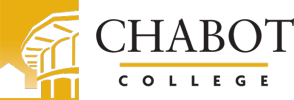
Political Science
This program map from the 2024-2025 catalog year represents one possible pathway to complete this program. Your pathway may vary depending on your transfer plans and also previous college credit, including AP Test scores, concurrent enrollment courses and high school articulated courses.
I'm ready to get started. What do I do next?
- Review this program map to get an overview of the required courses
- Meet with a counselor to develop your customized student education plan www.chabotcollege.edu/counseling
- Use DegreeWorks, an online student education planning tool, to track your progress toward graduation www.chabotcollege.edu / admissions / degreeworks
What can I do with this major?
Government actions impact business, finance, law, education, the environment, social services, health care, public safety, international affairs, human rights, and countless other areas of society. For this reason, the Political Science degree is highly versatile and allows majors to work in a broad array of fields including (but not limited to):
- Law (all areas of law: Political Science is the most common undergraduate major for law school students);
- Government (i.e. working at City Hall, the State Capitol, the Congress, running for office, staff member in a politician’s office);
- Business (i.e. corporate government relations, corporate public relations, corporate law);
- Public Policy (i.e. working in State or Federal agencies designing governmental programs in education, health care, environmental protection, immigration, and numerous other areas);
- Non-Profit Advocacy and Research (i.e. working for a non-profit organization that advocates for and conducts research on issues such as children, education, immigrants, veterans, consumer protections, internet privacy, health care; conducting research and designing policy at a think tank);
- International Affairs (i.e. working at US Embassies abroad, the United Nations, Greenpeace, Human Rights Campaign)
- Journalism (i.e. covering local, state, national and international politics for newspapers, magazines, podcasts, blogs);
- Campaign Work (i.e. developing campaign strategy, doing polling research, managing a campaign’s messaging, designing campaign literature and internet presence, raising funds for campaigns, managing campaigns, being a campaign spokesperson);
- Activism (i.e. working for an organization that mobilizes individuals and community groups to push local, state, and national government to implement changes in government programs and policies);
- Teaching (i.e. Social Studies teachers in K-12, Community College professors of Political Science, University professors of Political Science, Public Administration, and Public Policy).
*Fun fact: Political Science majors enjoy the highest average mid-career salary of all majors that are not STEM-related.
Learning and Career Pathway
- Social Sciences, Humanities & Education
Icon Key
Semester 1
Math for General Education and List A option course #1 (Choose PSY 5 or MTH 43 or BUS 19)
English 1- Critical Reading and Composition
General Education Course- see a counselor to choose the appropriate general education pattern and general ed course option for this term.
Elective- see a counselor to choose a course that counts for elective units (can be any credit course).
Semester 2
List A course #2
General Education Course- see a counselor to choose the appropriate general education pattern and general ed course option for this term.
General Education Course- see a counselor to choose the appropriate general education pattern and general ed course option for this term.
General Education Course- see a counselor to choose the appropriate general education pattern and general ed course option for this term.
General Education Course- see a counselor to choose the appropriate general education pattern and general ed course option for this term.
Semester 3
List B Course #1
General Education Course- see a counselor to choose the appropriate general education pattern and general ed course option for this term.
General Education Course- see a counselor to choose the appropriate general education pattern and general ed course option for this term.
General Education Course- see a counselor to choose the appropriate general education pattern and general ed course option for this term.
Semester 4
List A Course #3
List B Course #2
General Education Course- see a counselor to choose the appropriate general education pattern and general ed course option for this term.
General Education Course- see a counselor to choose the appropriate general education pattern and general ed course option for this term.
List A
Select three courses (minimum 9 units):
POSC
20
Comparative Politics
POSC
25
Introduction to Political Theory
POSC
30
International Relations
Statistics Course (Choose PSY 5 or MTH 43 or BUS 19) 1
List B
Select two courses (6 units) from List B